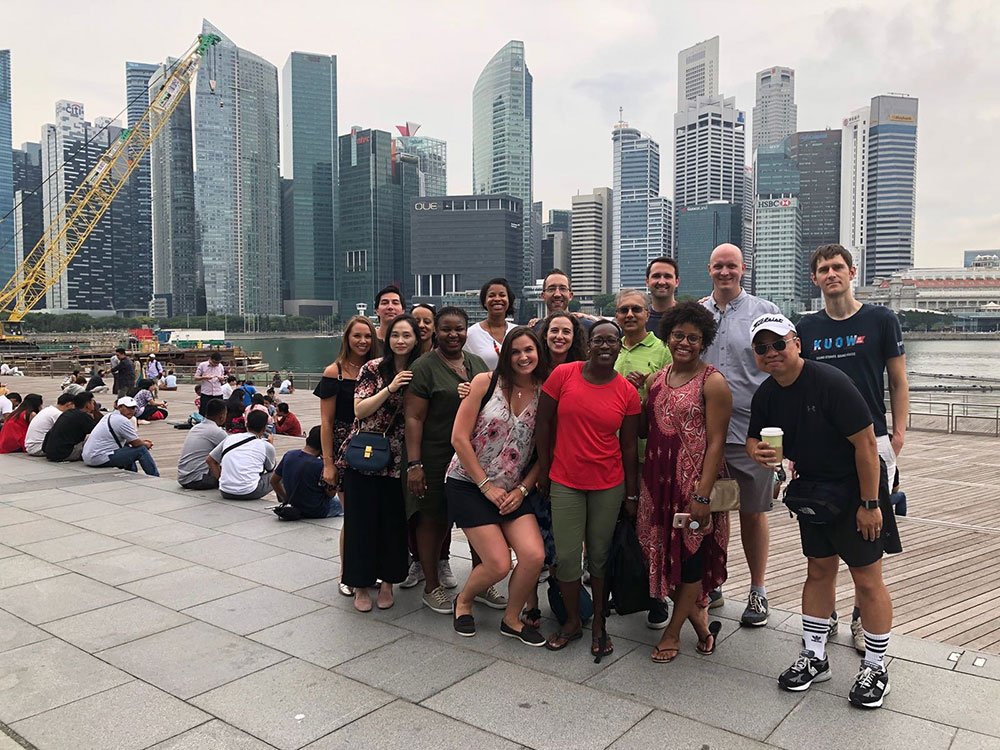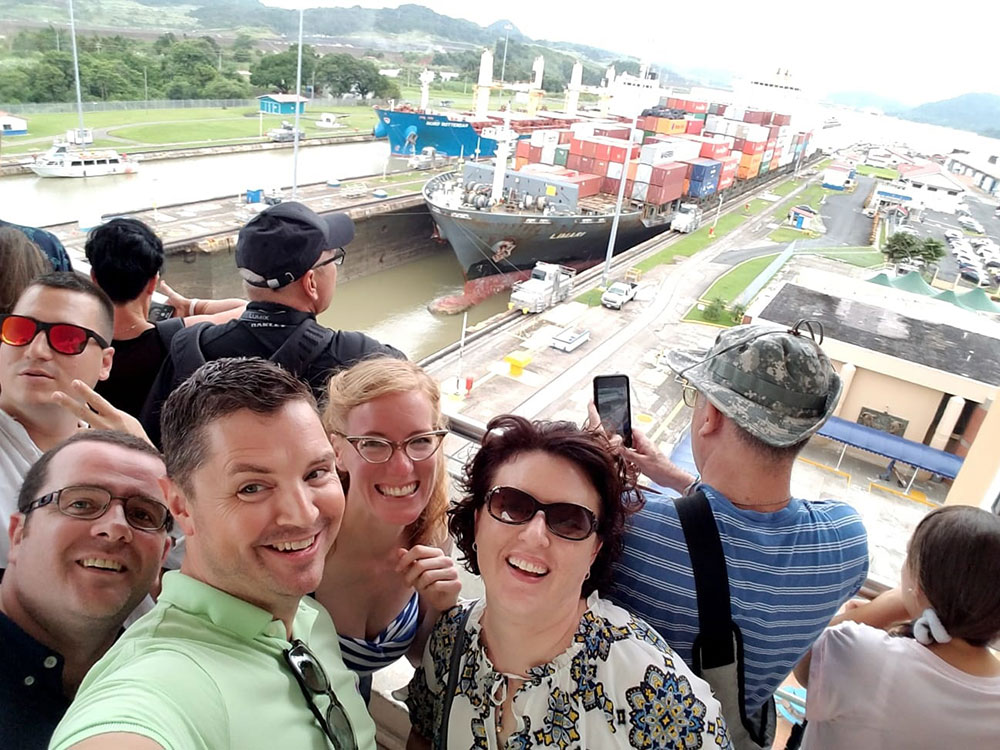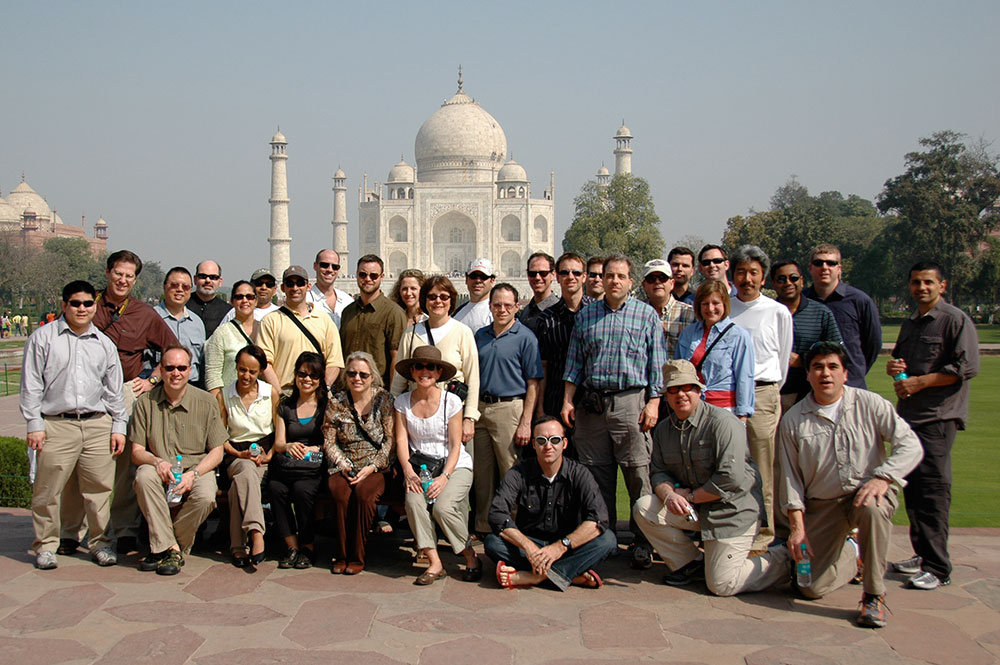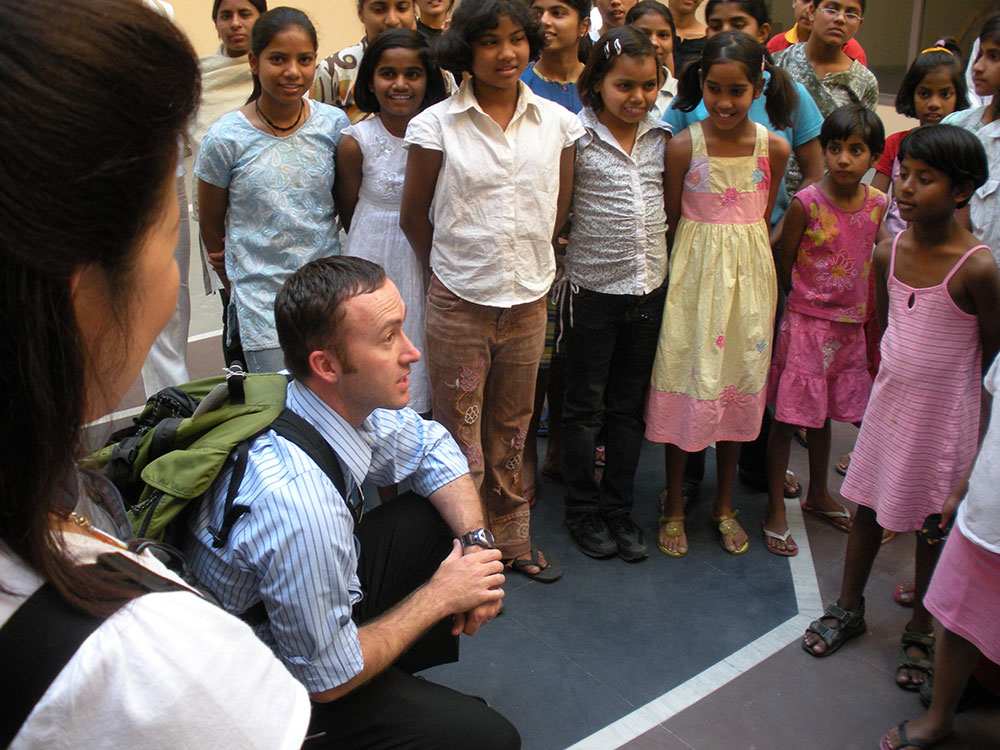EMBAs Immersed in the Ways of the World

As a required component of the EMBA program’s second-year curriculum, students travel internationally for seven to ten days. The trip is designed to provide an on-the-ground understanding of how to conduct business globally, including the influence and impact of history, culture, politics and economics.
The international immersion program includes meetings with leaders representing the full spectrum of local to multinational organizations and industries important to the specific country, as well as visits to manufacturing and cultural organizations.
Overarching goals of the immersion program for students include firsthand experience in analyzing and understanding the business environment in the visited countries; insights into potential opportunities and challenges of operating in a global context, especially as it pertains to the countries visited; confidence in applying the knowledge gained on the trip to better understand other countries and situations that one might encounter; and an additional perspective on U.S. business practices, and of the student’s own organization’s role in the global context.
Locations visited by the EMBA program include Asia (China, Hong Kong, Japan, Malaysia, Singapore, South Korea, Vietnam); Europe (Czech Republic, France, Germany, Poland, Spain, Switzerland); South America (Argentina, Brazil, Chile, Peru); India and the United Arab Emirates.
The following reflections of EMBA students share the broad spectrum of learning experienced during international immersion trips.
There were several business ideas which I was not aware of. Each and every company visit gave me great information on innovation, economy and history. The professor’s in-depth knowledge of and explanations of the world economy added value. The comparisons made between the world economy and the U.S. economy were extremely useful.
At the end of the week, it was interesting to look back. Each tour had something different to offer, an interesting perspective as to how politics affect businesses large and small, public and private. The organized chaos on the Vietnam roads; the over-the-top, attention-to-detail-driven customer service; and the way I felt like an object with all the constant pitching on the streets made Vietnam an unmatched experience — unlike any other I have ever had.
This immersion trip to Brazil provided a truly unique perspective that contrasts Asian and European business. There’s a clear melting pot ambiance to Brazil. The valuable insights into both international companies and Brazilian-born corporations will forever have an impact on my professional growth.
The lecture by Professor Vivian Leite (Business School Sao Paulo) about cultural diversity was a good introduction to the thinking and behavior that constitutes the social culture of Brazilians. The lecture about Brazil’s economic and political environment was much appreciated in order to put my observations of Sao Paulo and Curitiba into context. The visit to Casa de Cultura was the most personally impactful experience. The energy, the investment in teaching and sharing, and the business reason for funding the program were examples that business and communities can align their interests to make society a better.
We observed people of every caste and occupation over the course of our time in India. Living for a week within a vibrant and infinitely faceted culture brought many rewarding moments and a few challenges.
At first glance, the relevance of the trip seemed purely educational, but my experience went much deeper than that. We were provided many opportunities to connect with business leaders, governmental organizations, entrepreneurs, and educators that were able to paint a holistic picture of each countries’ heritage, core competencies, economic outlook, growth opportunities, and current challenges.
This trip was highly impactful to expanding my global mindset. I got to really understand the lives of people across different countries in a way I wouldn’t have otherwise been able to. I was able to more deeply understand the complex dynamics of emerging markets, as well as see the role that the government can play in the success of business.




